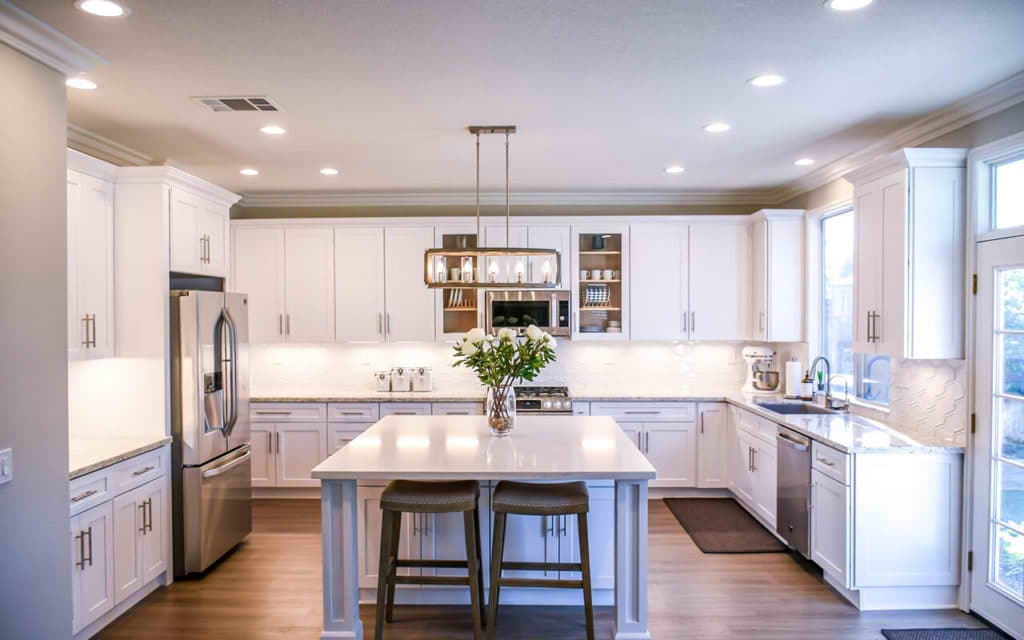Solar power for residences is increasing in appeal and lowering in cost. Many house owners are discovering the benefits of Solar energy and you may have even seen numerous solar panel systems being installed in your own local community.
You’re possibly wondering:
How much do solar panels cost?
How much money will I minimize my electrical energy bill?
How solar panels function?
Are solar panels worth it?
This tutorial is a general introduction of solar energy for newbies so you can make the most effective feasible decisions concerning solar power for your house.
A solar panel (or photovoltaic or pv panel) is a panel made of solar cells. Solar cells are the necessary element through which light is converted into electric energy and they are normally made of crystalline silicon. Each solar panel normally contains from 32 up to 96 solar cells.
Depending upon the way solar cells are made, solar panels are classified as polycrystalline, mono-crystalline, or thin film. The first two groups, which are one of the most typical kinds of solar panels, are made of crystalline solar cells. The third category (thin film) is made of amorphous silicon.
Frameless solar panels have actually gotten on the market for greater than a decade. Also, solar tiles and solar tiles popularized by the Tesla solar are two kinds of products that are becoming much more preferred among domestic applications.
How do solar panels function?
Solar cells generate electrical energy by transforming the significant solar energy that the earth receives each day in the form of sunshine and more especially in the form of photons. Most normal commercial solar remedies transform sunshine to electric energy at an ordinary performance of 3– 17%.
In order to have a full system that will generate electrical energy for your house, you need the complying with elements:.
a) solar panels.
b) solar panel mounting frameworks.
c) an inverter.
d) an electric panel with the needed switches and breaker.
e) DC and AC electric cables.
f) Power meter.
Typically, domestic solar systems are separated right into 2 main groups: off-grid and on-grid.
When it comes to an off-grid system, the electrical energy created by the solar system will be made use of to cover 100% of the electric usage of a house considering that the house is not linked to the electric grid at all.
In a on-grid system, the house where the solar panels are installed is linked to the main power grid. Electrical energy created by the solar panels can either cover the electric needs of the house or when you generate more electrical energy than required, it is sent out to the power grid.
With net metering, your monthly electrical energy bill is computed both ways, based on the net of your overall energy usage and the monthly outcome from your solar panels. If you are generating much more energy than you’re using the utility company will literally pay you!
How much will I minimize my electrical energy expenses if I install solar panels?
How much you in fact conserve depends upon a variety of variables.
Where you live matters a great deal. Sunnier is better. For instance. A 5Kw setup consisting of 20 solar panels can generate approximately 8,000 kilowatt-hours each year if your home is in a warm and warm state like Texas, but the same system will only generate approximately 6,000 kWh each year if your home is in a much less warm state like Connecticut.
The offered surface area on your roofing system, the unshaded get rid of the appropriate alignment, figures out how many solar panels you can install and subsequently your savings.
Solar is obtaining preferred to be sure!
How much does a solar panel system cost?
You need to know how many solar panels you need. In 2019 the ordinary cost of a domestic solar panel is $2.99 per watt, so with an ordinary solar panel system size of 5 kilowatts, you are looking at an ordinary cost of $14,950 before any tax credits or incentives. Equipment comprises the majority of the cost but licenses and labor for solar setup are also factored in.
Benefits and negatives of solar power for your home:.
Pros:.
– A true renewable resource source.
– Reduce your electrical energy bill and provides insurance coverage versus rising power rates.
– Low maintenance cost.
– Financial incentives from the government.
– They operate quietly, without any relocating components and give off zero contamination.
– They have a lengthy life span and reliability in operation. The assurances provided by the manufacturers for the solar panels are generally for greater than 25 years of great operation.
Cons:.
– Initial prices, but minimal cost decreases to zero once the cost of setup is settled.
– Weather Dependent so it is an recurring energy source, and can not be relied on in crucial applications.
– Energy storage systems to smooth need and tons like the Tesla power wall are costly.
Check out [xfield-company] for more information.
About Solar Power Installers Dallas – Dallas’s Highest Quality Energy Company

